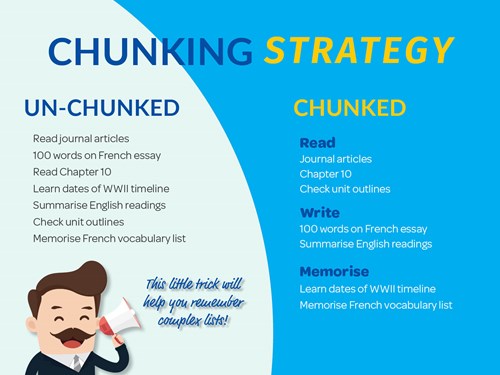5 ways to cope when study gets overwhelming

Everyone knows that yoga, dog walking and runs on the beach feel great. But recommending those activities isn’t extremely pragmatic advice when you have a week full of deadlines that are absolutely freaking you out. So what about some more practical help? Keep reading if you’ve ever written a to-do list that never got checked off, or if you bought a study planner that remained blank for the entirety of last year. Studying can actually be way less stressful than it feels right now, if you take this advice to heart.
Ways to decrease stress from studying
- Negotiating deadlines
- Get advice
- Don’t stick your head in the sand
- Make a list, check it often

1. Negotiating deadlines.
Believe it or not, if your trainer knows you have three assessments due in the same month, they may be able to help you space out your schedule. Don’t take advantage of this if you’re not truly snowed under by your workload, because that’s just creating more work for yourself in the long-term. But if you have landed an insane timetable, or you’re experiencing difficult circumstances, talk to someone and don't leave it until the last minute. Your trainers can only help you if they know you’re having trouble with time management.
2. Get advice.
Most people don’t take advantage of the resources available to them by their educational institution. If your trainer says you can meet contact them for help during certain hours, they mean it. And they’d like people to do so, because they have to keep those hours available every week, regardless of whether anyone decides to get in touch. It’s incredibly useful to have one-on-one time with your trainers, even if you don’t have a whole list of specific questions for them. If you’re feeling overwhelmed by your workload go check in with them to talk about how the subject is going. They can give you an honest opinion of how you’re performing, which will inform you as to how stressed you actually need to be.
Alternatively, most institutions offer online study groups these days, so don't be afraid to ask your classmates for assistance understanding a topic or assignment.

3. Don’t stick your head in the sand.
Clear your schedule. If you know this fortnight is going to be crazy, your friends will understand if you bail on dinner. Yes, socialising is a happy distraction from an intense workload, but sometimes taking the night off just compounds the stress you feel the next day. It’s very hard to get motivated when you know you could be eating tacos at a friend’s house instead, so organise something fun for straight after you’ve finished all your work. It’ll feel so much sweeter when you don’t have stress on the back of your mind.
4. Make a list, check it often.
Everyone makes checklists, nobody ticks them off! Become a list ticker. Before you go to sleep, write a list for the next day. Figure out what is the task or item that worries you the most and prioritise it. For example, if there’s an assignment you’re most concerned about get it out of the way first. Setting priorities will allow you to approach the rest of your study with a clearer mind and a happier attitude.
At the end of each day, review your list to see what you achieved. It’s really important to witness and acknowledge the work you’ve done. Don’t punish yourself for the tasks you didn’t make it to. Revise the list for the next day, adjusted to match your evolving priorities.
Bullet Journals
Ryder Carroll, a digital product designer from New York City has developed the Bullet Journal, which is a wonderful list-making system, similar to the method I’ve outlined above. Read more about bullet journaling here.
The Chunking Strategy and Lists
If your lists are becoming long-winded, the Chunking Strategy is a useful approach to group list items by category, lightening your cognitive load and making all items easier to remember. The Peak Performance Centre use the example of a grocery list, which is much more approachable when broken down into chunks such as ‘Bakery’ or ‘Fruit and Vegetables’ instead of a long, disorganised string of items. The same approach can be applied to your To Do list.
This is just one example of how you could categorise your chunks. Another approach would be by subject, or by the days of the week you will tackle each chunk. You can see the tasks on the list are the same on both sides, but rather than one chaotic mass they are now in manageable chunks.
It’s not the end of the world
Whatever happens, if you’re honestly doing your best, there’s nothing more you can do. The sun will keep rising and the earth will keep turning. In twenty years you are not going to be thinking about the outcome of this work at all. So give it a good go, because that’s all you can do!
If you’re still feeling overwhelmed or stressed, check out this article on Stress Management. Sometimes our stress is founded in an emotional space instead of a rational space, and by critically examining our thought patterns we can become more in control of the ways we think and feel.



)
)

